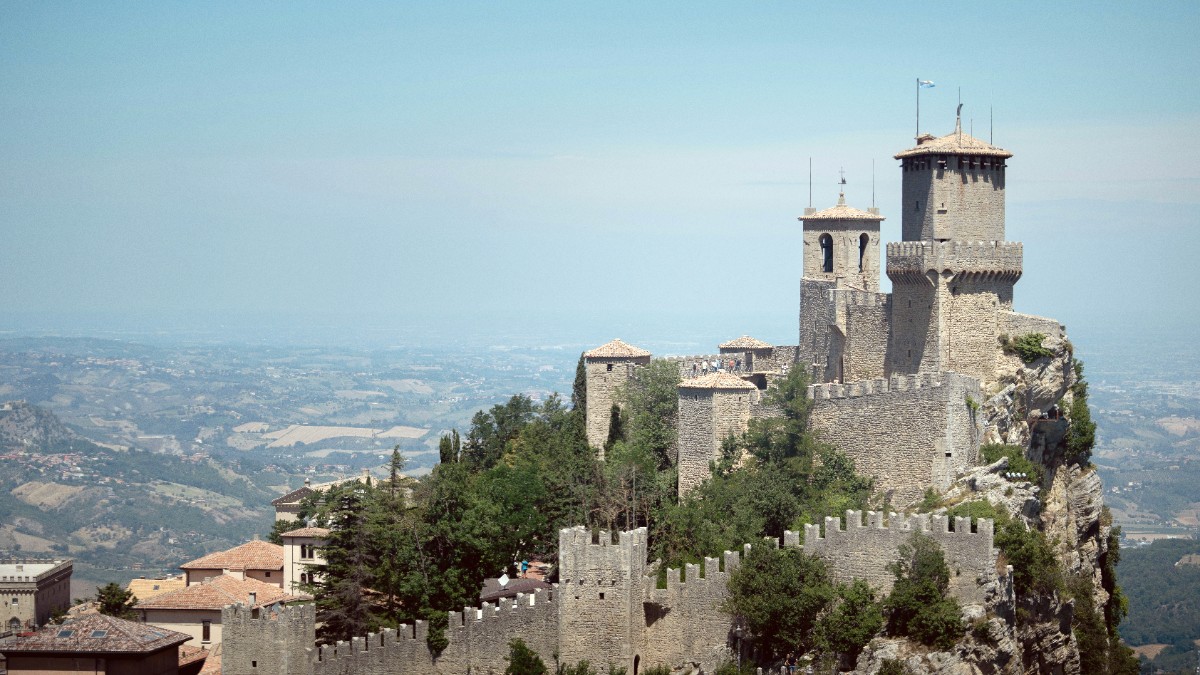
Friuli Venezia Giulia, Italy
Spring (April-May) presents mild weather. Average temperatures span 10-20°C (50-68°F). Rainfall stays moderate, and humidity levels are comfortable. This period sees blooming flowers and fresh greenery, making outdoor exploration notably enjoyable.
Summer (June-August) brings warm to hot temperatures, averaging 20-30°C (68-86°F). July and August are the warmest months. Humidity can be present, and afternoon thunderstorms may occur. Despite the heat, summer proves popular for outdoor activities and events.
High Season (June-August): Warmest weather, ideal for outdoor activities and events. Crowds are larger, prices higher. Heat and humidity may be intense.
Shoulder Season (April-May, September-October): Mild, pleasant weather with fewer crowds, moderate prices. Variable weather with more rain possible. Some attractions shorten hours in late October.
November-March
Lowest prices for accommodation and flights. Fewer tourists for intimate city exploration. Festive atmosphere around Christmas.
Cold temperatures and frequent fog. Shorter daylight hours limit sightseeing. Some seasonal businesses may close or reduce schedules.
Optimal Timing
Spring (April-May) and Autumn (September-October) present optimal temperatures for exploring Udine's historic core.
Late Spring, Summer, and early Autumn are suitable for hiking and cycling. Cooler mornings or evenings are best.
Taste of Friuli
Autumn, especially September and October, offers an immersive experience, aligning with the grape harvest in Colli Orientali.
Mid-range prices in shoulder season mean greater opportunity to explore local osterie.
Summer in Udine may experience sudden, heavy thunderstorms, notably in the afternoons. These typically pass quickly, leaving cooler, fresher air. Winter often brings persistent fog, known as 'nebbia.' This may significantly reduce visibility and could lead to delays if driving or taking trains, especially early morning or late evening.
For sightseeing and walking tours, Spring (April-May) and Autumn (September-October) provide the most agreeable temperatures. For outdoor activities like hiking or cycling, late Spring, Summer, and early Autumn are suitable, with cooler mornings or evenings best in summer.
Autumn, especially September and October, coincides with the grape harvest in Colli Orientali del Friuli, ideal for wine tours.
Enjoy local dishes in comfortable shoulder season weather.
Experience the lively aperitivo tradition as evenings cool down.
Visit Mercato Coperto for seasonal produce year-round.
Shoulder seasons offer a more relaxed dining and exploration experience.
Italy participates in the Schengen Area, meaning entry policies for Udine follow Schengen guidelines. Specific visa needs depend on your nationality.
Italy is part of the Schengen Area. Entry rules align with Schengen regulations. Citizens from many non-EU countries do not need a visa for stays up to 90 days within 180 days.
For stays over 90 days (study, work, family), a national visa is necessary. This application is more involved, requiring specific documentation.
Travel costs vary significantly based on your travel style and choices.
Accommodation: Hostel dormitory or basic B&B. Food: Self-catering, pizza slices, local osterie. Transport: Walking, public buses. Activities: Free attractions like Piazza Libertà and strolls.
Daily Costs: €50-80
Minimizing expenses is a priority for this style.
Accommodation: Comfortable 3-star hotel or private B&B room. Food: Mid-range trattorie, aperitivo, cafe visits. Transport: Public transport, occasional taxis. Activities: Museum entries (Udine Castle, Diocesan Museum), guided walking tours.
Daily Costs: €80-150
A balance of comfort and cost effectiveness.
Accommodation: Boutique hotel, 4-5 star establishment, spacious apartment. Food: Fine dining, multi-course meals with local wines. Transport: Private transfers, taxis, car rental for day trips. Activities: Private wine tours, cooking classes, guided excursions.
Daily Costs: €150+
Experiences prioritizing comfort and exclusivity.
| Category | Item | Price Range |
|---|---|---|
| Accommodation (per night) | Hostel Bed / Budget B&B / Mid-range Hotel / Luxury Hotel | €25-40 / €50-90 / €90-150 / €150+ |
| Meals (per person) | Breakfast / Street Food / Lunch / Dinner / Espresso / Beer | €3-5 / €4-8 / €12-25 / €25-50+ / €1-1.50 / €5-7 |
| Transportation | Local Bus Ticket / Taxi (short) / Train to Trieste/Venice | €1.30-1.80 / €10-20 / €8-15 (one way) |
Italy maintains high standards in these areas. Awareness supports a smooth trip.
Consult a travel health professional before your trip. They often recommend ensuring your routine vaccinations are up-to-date.
A healthcare provider delivers personalized recommendations based on your health history and travel itinerary.
Keep relevant health information readily available.
Sunburn, dehydration, and minor stomach upsets are common. Prevention measures mitigate these issues.
Sunburn: Use Sunscreen, wear a hat, seek shade. Dehydration: Carry a Reusable water bottle, drink ample water. Tap water is safe. Stomach Upsets: Practice good hand hygiene, introduce new foods gradually. Insect Bites: Use Insect repellent for evenings outdoors.
Tap water in Udine is safe to drink and high quality. No need to buy Bottled water for safety reasons.
Food hygiene standards in restaurants are high, meeting EU regulations. Eat confidently from reputable establishments.
Carry your European Health Insurance Card (EHIC) for state-provided healthcare on same terms as Italian citizens.
Comprehensive travel medical insurance [SafetyWing / World Nomads] ensures treatment without high costs. Verify coverage for emergencies, doctor visits, hospital stays, and medical evacuation.
Identifiable by green cross ('farmacia'), well-stocked. Pharmacists advise on minor ailments and dispense OTC medications.
Udine is generally safe with low crime rates. Petty crime like pickpocketing occurs in crowded areas, but less than in major hubs.
The historic center and residential areas are very safe, even after dark. Exercise general caution in less populated or dimly lit areas late at night. Trust your instincts.
Low risk of major natural disasters. Region is seismically active, minor tremors occur, but damaging earthquakes are rare (last major in 1976).
Persistent winter fog affects travel. Summer thunderstorms, though brief, can be intense. Stay informed on local weather.
If a victim of crime, report to local police (Carabinieri or Polizia di Stato) immediately. Obtain a police report for insurance claims.